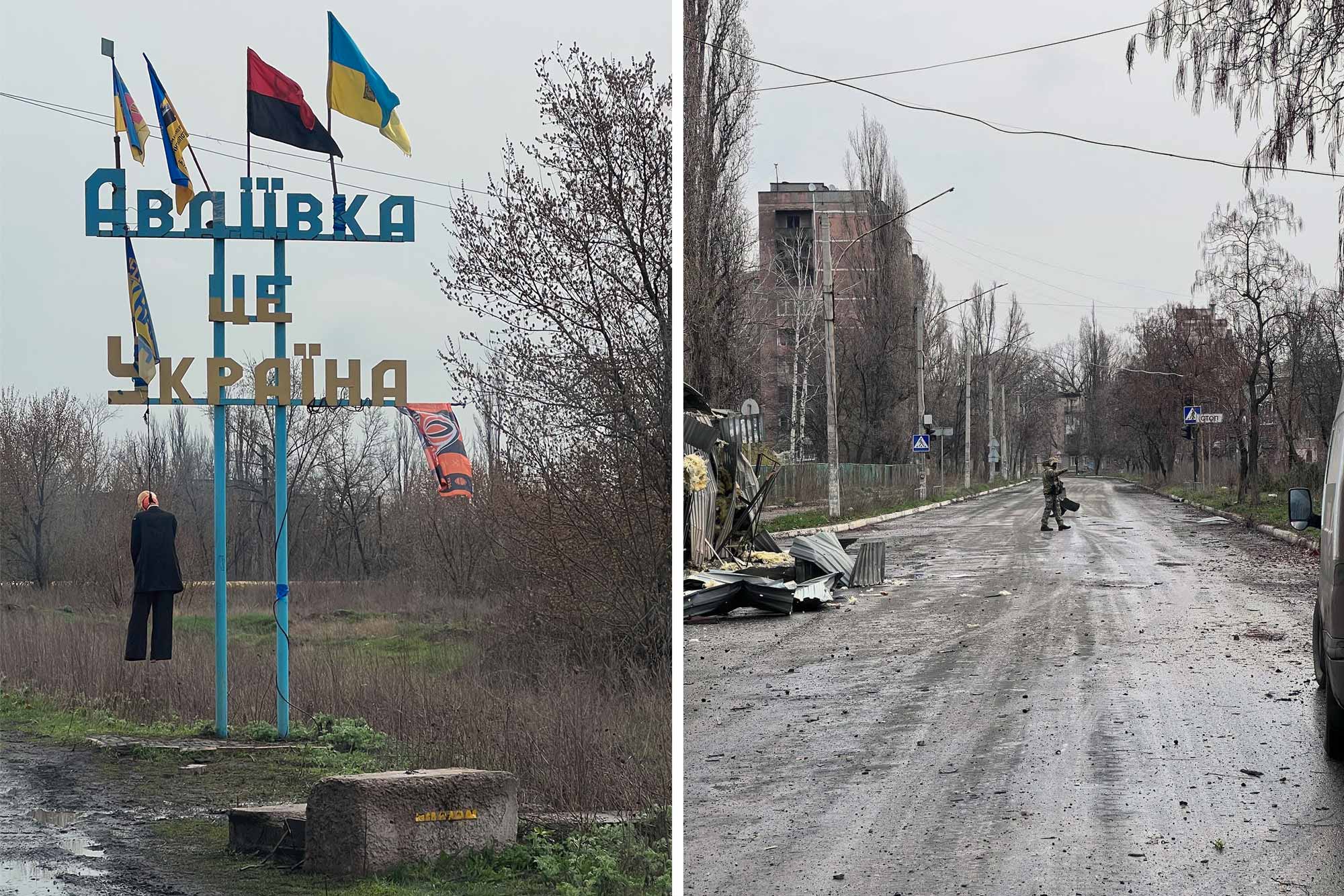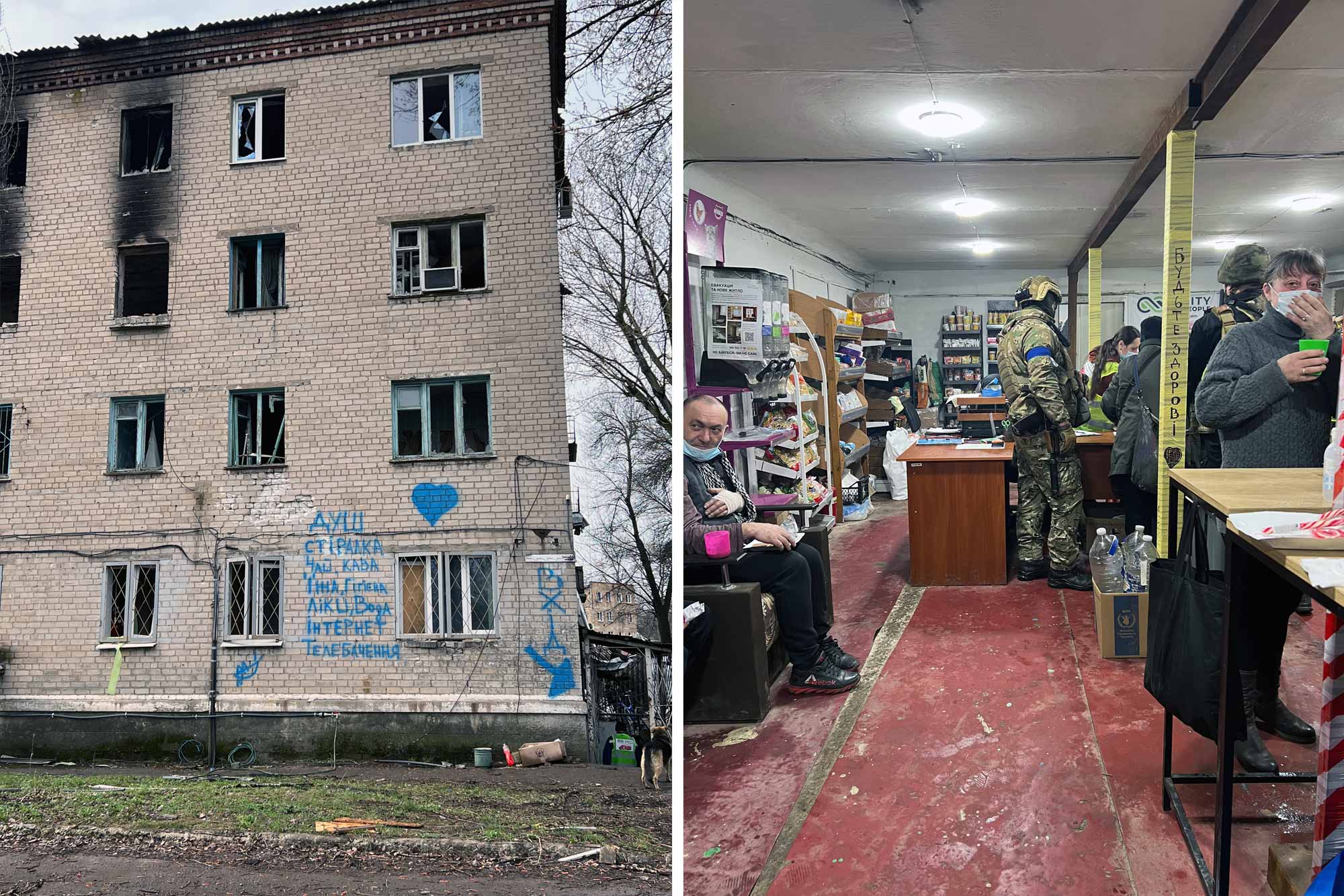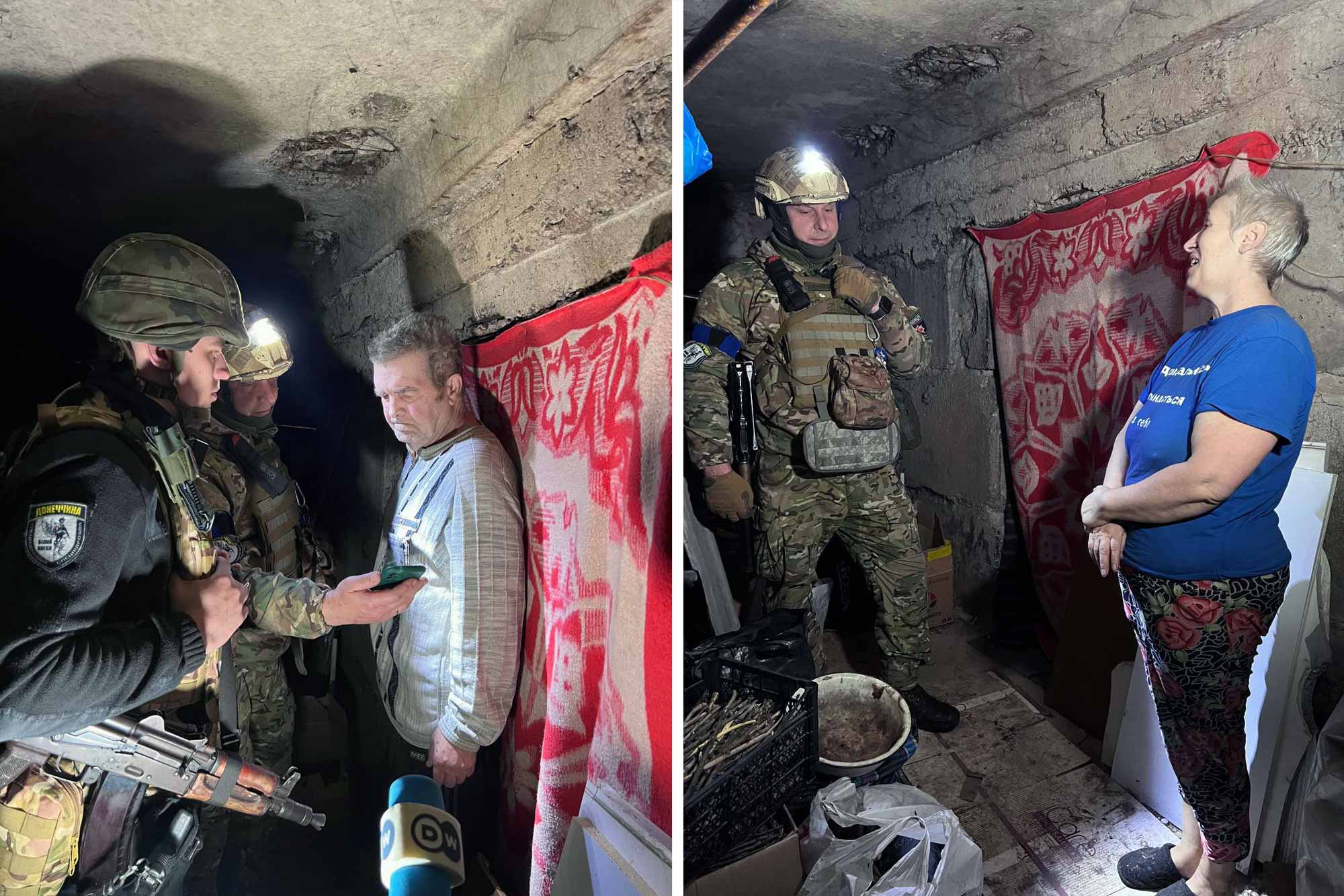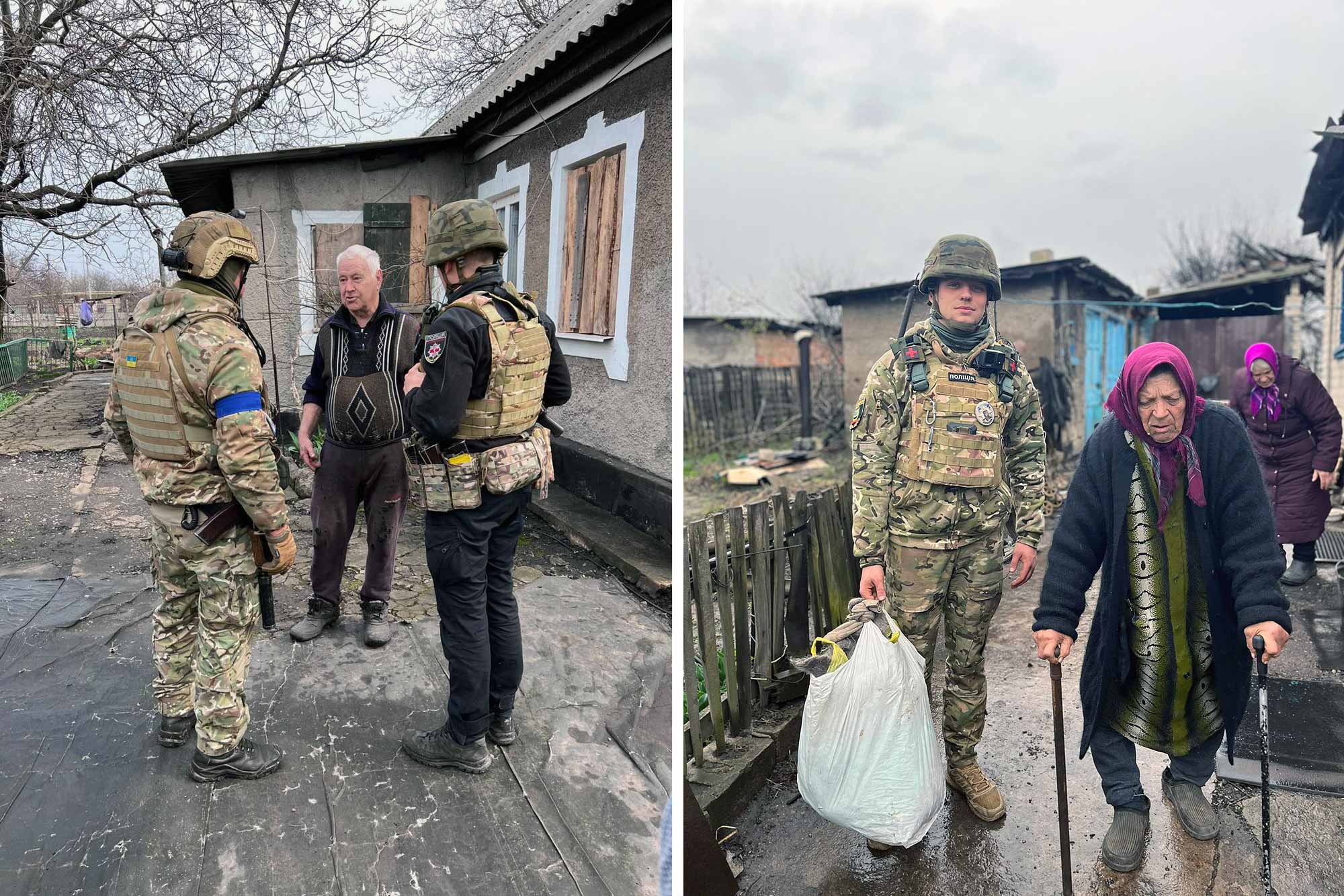The White Angels of Donetsk
Evacuation crews try and take locals to safety, but many in the hard-hit region are still reluctant to leave.
Iryna, 60, lives in the basement of her house in Avdiivka with her son, four cats and two dogs. She categorically does not want to leave her home town in Ukraine’s eastern Donetsk region, even though it is under constant Russian fire.
"You cannot escape from fate,” she said. “If you have to die from this, you will die.”
Like a mantra, she repeats that those who have been evacuated to the calmer west of the country have to beg for help, sleep on floors and are treated badly.
“Here I feel like a person,” Iryna continued. “But there... I don't know…”

According to the police, such cases are not isolated. Before the full-scale war, about 30,000 people lived in Avdiivka, most of whom worked at the local coke and chemical plant. A forced evacuation was announced at the beginning of April last year, but some 1,800 civilians remain in the city.
These are mostly the elderly and disabled who survive on humanitarian aid but stubbornly do not want to leave their homes, even though not a single building remains intact and people have been without electricity, water and gas for a long time.
There are five evacuation crews covering the areas of Avdiivka, Bakhmut, Velikonovosilkiv, Mariinka and Lyman, made up of police officers who try and take local residents to a safer place.
The White Angel crew travels from Mirnograd to Avdiyivka almost every day. Their white armoured car, bearing their logo, makes its first stop at the volunteer hub, the converted basement of a five-storey building.
There is a room where people can get a hot drink or a meal, a kitchen where they can cook and shower cabins. Another section has washing machines for laundry.
Due to the constant bombardment, communal services ceased to function at the end of March. One shop is open, but a trip to it or to the volunteers for water turns into a quest where you risk your life.

Avdiivka resident Lyudmila has been volunteering at the centre for several months. The 54-year-old explained that those who remain, and who are not afraid to leave their homes because of constant shelling, come here.
"We make tea, coffee, sandwiches, give out sweets - everything that volunteers bring - candies, sausages, bread - all the essentials," she said.
When asked why she doesn't leave the city, her eyes brim with tears.
"This is my homeland, I was born here, lived all my life, my parents are buried here,” she said. “I don't want to leave my home. The work of many generations is simply destroyed. I'm very sorry, but this is too much for me. I can't go. Moreover, if I can help someone, that's great. You understand? When a person can help even in such a situation, it is worth a lot. I am needed here and I will help as long as I can."
On the walls of the hub are and posters with hotline numbers for evacuation and leaflets explaining the provision of free shelter for those who want to leave.
Nonetheless, policemen Gennady Yudin and Dmytro Solovei, part of the Avdiyivka evacuation crew, have to use all their communication skills to persuade people to leave. Their team has evacuated more than 5,000 civilians, of whom more than 400 were children, from the Donetsk region. Yudin and Solovei are themselves local, so they know the area and the people well.

It took them three visits to Valery Oleynikov, in his 70s, who lives in the basement of one of the high-rise buildings in Avdiyivka, before they could convince him it was time to go.
On the first visit, the police showed the elderly man a video recording of his daughter, who lives in Dnipro, begging her father to leave. Having seen a news story about the conditions in which people were living in Avdiyivka, she implored her father to agree to be evacuated. He refused, and refused again the second time the White Angels visited. It was only when a shell hit the neighbouring house that Oleynikov agreed to leave.
"Every day we convince people to leave,” Yudin said. “Their children are also convincing them. But they cling to it - this is my place, I grew up here, lived, worked, this is where I will die - that's what they say. ‘No one is waiting for us there, there is no money.”
It is also likely that some of the older people still feel nostalgia for the Soviet era, Yudin said, adding that he did not discriminate against people over their political preferences.
"Unfortunately, there are those among civilians who are waiting for the so-called “Russian world”, perhaps passing on information about the location of the armed forces,” he said. “There are cases when the SBU [Ukrainian secret service] detained such people. Local residents have relatives who are fighting on the enemy side. But it is our job to evacuate people. We swore an oath to the people of Ukraine - to help people.”
It is especially hard when families with children refuse to leave. Often, parents go into hiding to avoid forced evacuation.
The team spent around six months trying to persuade one family with two children to leave. The police paid repeated visits to the family, who lived near the Avdiivka industrial zone, to suggest evacuation. However, the parents did not want to leave their hometown, so they took their children and went into hiding at another location.
“On April 3, we evacuated the mother, a nine-year-old girl, and a 16-year-old boy to Myrnograd, then the volunteers offered the family to go to Dnipro,” Yudin said.
A week later, another family, with a two-year-old and a 12-year-old were evacuated, “and now they are safe there," said Yudin.
The White Angels know that with some residents, the best they can do is keep visiting and offer what support they can.
“I will be here with you until the end."
Tymofiy, 82, has lived alone in his house since his wife agreed to be evacuated.

He shows off his carefully tended garden to the visiting police officers - his wife planted many flowers before leaving – and indicates where he plans to plant watermelons and the spot best for ripening tomatoes.
The White Angels promise to pass by again, and bring him medicine next time they come.
Tymofiy does not even hide in the basement during shelling, despite the fact that there is no way of calling for help if he injured by debris.
"You, military men and soldiers, are not going to leave us? Well, why will I evacuate?’ he exclaimed. “I will be here with you until the end. If it happens, God forbid, that you will leave here, and I will go with you then. And now I don't want to.
